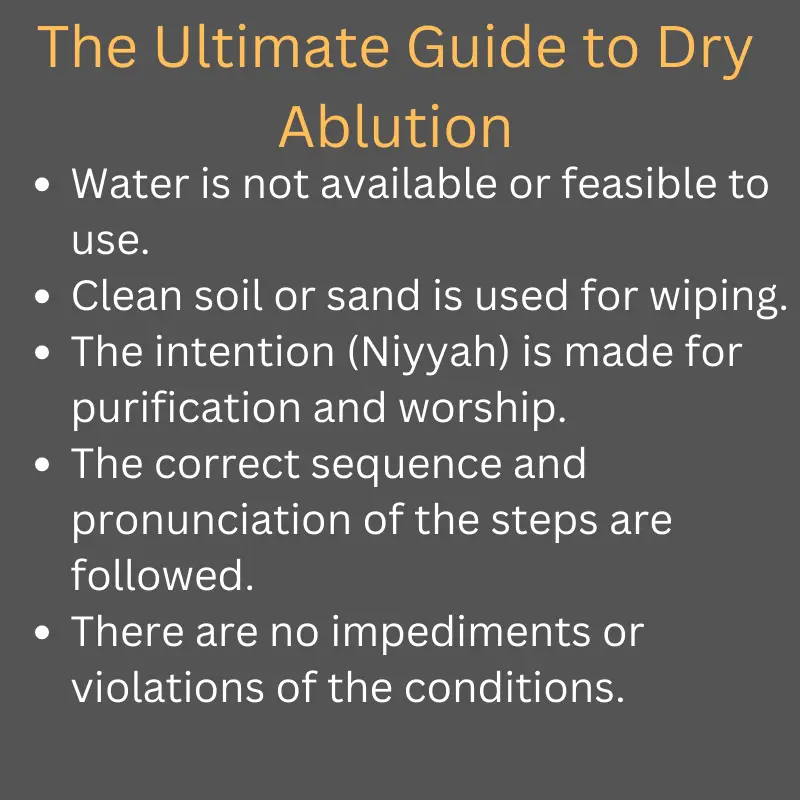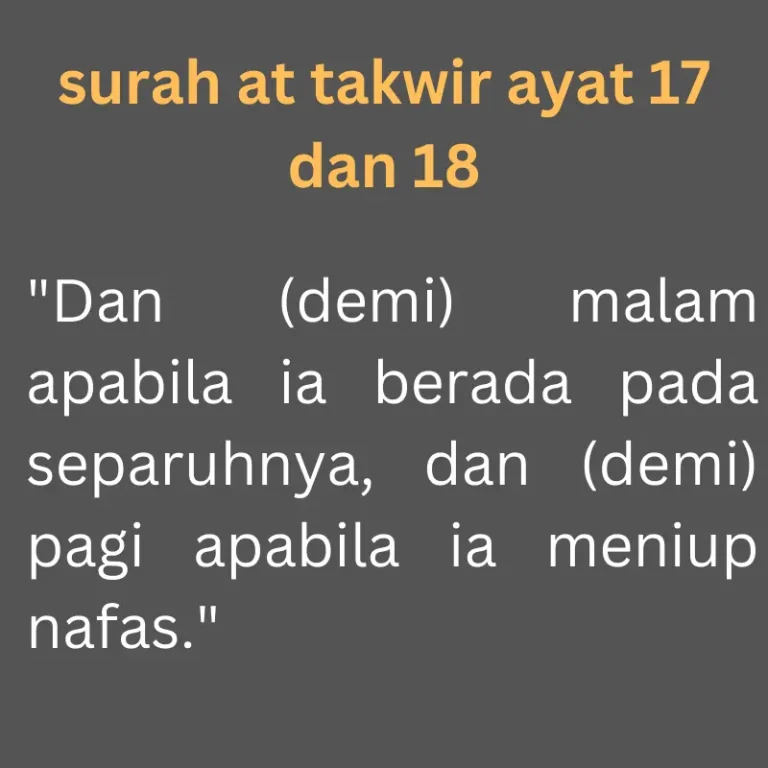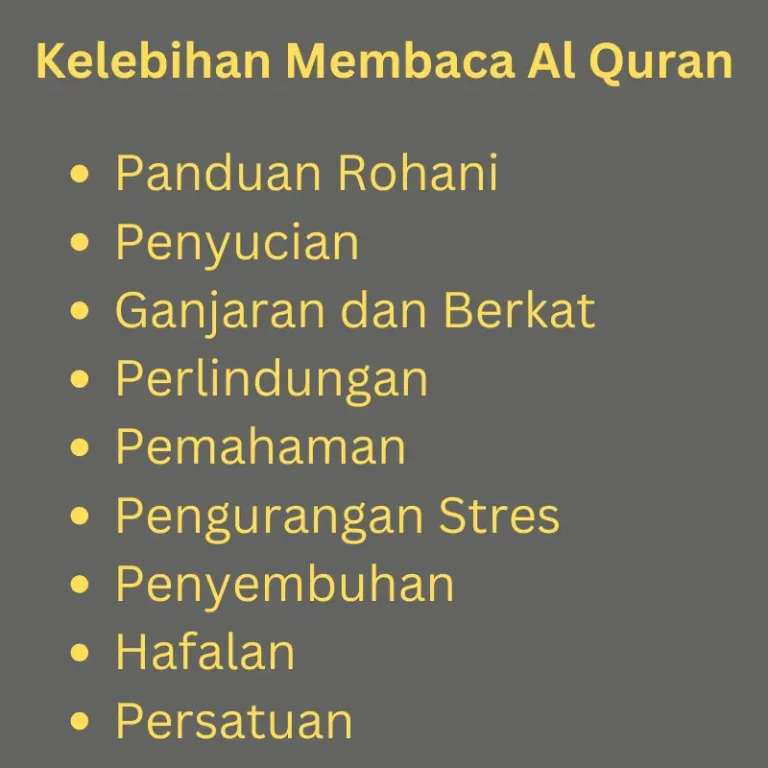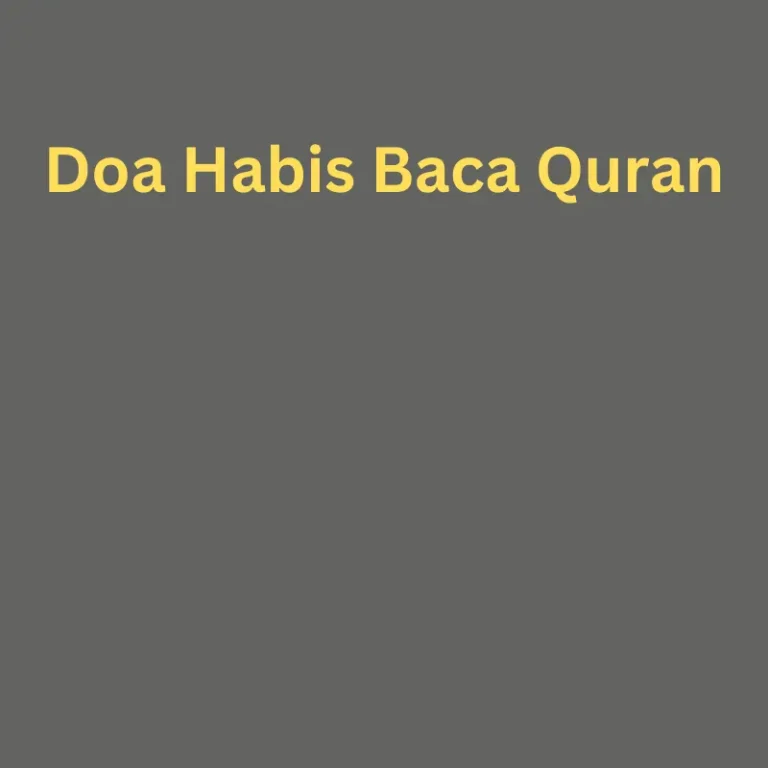The Ultimate Guide to Dry Ablution
Keeping oneself clean and pure is an essential aspect of Islamic belief and practice. Muslims are required to perform ablution (wudu) before praying, which involves washing specific body parts with clean water. However, sometimes it is not possible to access water or use it due to health or environmental reasons. That’s where the concept of Dry Ablution (Tayammum) comes in. We will discuss the Guide to Dry Ablution in this article.
Dry Ablution is a ritual of purification that allows Muslims to cleanse themselves without using water. It is a practical solution for situations when water is scarce, unavailable, or harmful to use, such as during travel, illness, or drought. Dry Ablution involves specific steps and conditions that need to be followed to ensure its validity and effectiveness.
In this article, we will explore the concept of Dry Ablution in detail, its benefits, steps, FAQs, and everything you need to know to perform it correctly.
Benefits of Dry Ablution
Dry Ablution has several benefits, both spiritual and practical, that make it a valuable practice for Muslims.
Allows for Purification: Dry Ablution enables Muslims to purify themselves without using water, which is essential for prayer and other rituals. It is a practical solution for situations when water is not available or feasible to use, such as during travel or in arid regions.
Saves Time and Effort: Dry Ablution is a quick and straightforward process that requires minimal time and effort compared to traditional ablution. It is especially useful for people with disabilities, medical conditions, or busy schedules who may find it challenging to perform regular ablution.
Romotes Hygiene: Dry Ablution involves cleaning specific body parts with clean soil or sand, which helps to remove dirt, germs, and impurities. It is an effective way to maintain hygiene and prevent infections, especially in places where water is not clean or safe to use.
Fosters Spiritual Discipline: Dry Ablution is an act of worship that requires intention, attention, and mindfulness. It is an opportunity for Muslims to strengthen their spiritual discipline and connection with Allah (SWT) by performing a ritual that is not bound by physical limitations.
The Ultimate Guide to Dry Ablution
Dry Ablution involves the following steps:
- Make the intention (Niyyah) to perform Dry Ablution for purification and worship.
- Find clean soil or sand that is free from impurities such as urine, feces, blood, or animal waste. The soil should be dry, and the sand should be fine and pure.
- Strike the soil or sand with both hands, reciting the following verse from the Quran: “We have made the earth a place of prostration and purification for us.” (Surah Al-A’raf 7:31)
- Shake off the excess soil or sand from your hands, then wipe your face once with your right hand, and once with your left hand.
- Wipe your right hand up to the wrist and then your left hand up to the wrist. Ensure that you wipe both sides of each hand thoroughly.
- Recite the Shahada (Testimony of Faith) to complete the Dry Ablution.
Note: Dry Ablution should be performed in a clean and private place, away from any impurities or distractions. It is essential to follow the steps in sequence and with the correct intention and pronunciation.
Is Dry Ablution an alternative to regular ablution (wudu)?
Dry Ablution is not an alternative to regular ablution, but rather a substitute in situations where water is not available or feasible to use. Muslims are still required to perform regular ablution before prayer and other acts of worship whenever possible.
Can Dry Ablution be performed multiple times?
Dry Ablution can be performed multiple times until water becomes available or feasible to use. However, it is recommended to perform regular ablution whenever possible for maximum purification and spiritual benefits.
What types of soil or sand can be used for Dry Ablution?
Clean soil or sand that is free from impurities and contaminants can be used for Dry Ablution. It is best to use soil or sand that is pure and natural and not artificially treated or contaminated.
What are the conditions for Dry Ablution to be valid?
Dry Ablution is valid under the following conditions:
- Water is not available or feasible to use.
- Clean soil or sand is used for wiping.
- The intention (Niyyah) is made for purification and worship.
- The correct sequence and pronunciation of the steps are followed.
- There are no impediments or violations of the conditions.
Dry Ablution is a practical and valuable practice in Islam that enables Muslims to purify themselves without using water. It is a simple and effective solution for situations when water is scarce, unavailable, or harmful to use. Dry Ablution promotes hygiene, saves time and effort, and fosters spiritual discipline and connection with Allah (SWT).
Performing Dry Ablution requires following specific steps and conditions to ensure its validity and effectiveness. It is essential to make the intention (Niyyah), find clean soil or sand, and follow the correct sequence and pronunciation of the steps. Dry Ablution is not an alternative to regular ablution (wudu) but rather a substitute when water is not available or feasible to use.
By learning guideliness about Dry Ablution and incorporating it into our lives, we can stay clean and fresh anytime, anywhere, and deepen our spiritual practice and connection with Allah (SWT). So, next time you find yourself without water, remember the concept of Dry Ablution and perform it with mindfulness, intention, and gratitude.








